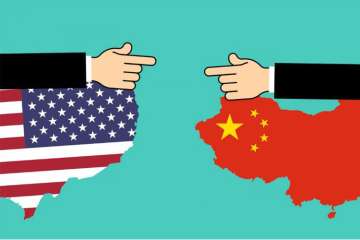In yet another fall-out of the ongoing US-China trade war, tech giants like HP Inc, Dell, Microsoft and Amazon are considering to move "substantial production capacity out of China", threatening the country's position as the world's technology powerhouse.
Also, read: Tim Cook rubbishes reports of Jony Ive frustrated with him
According to a report in Nikkei Asian Review on Thursday, HP and Dell who make notebooks in the Chinese cities of Chongqing and Kunshan are both looking to move up to 30 per cent of their laptop production out of the country.
Microsoft may move some Xbox gaming console production while Amazon could shift production of its Kindles and Echo speakers.
"Other PC makers like Lenovo Group, Acer and Asustek are also exploring production outside of China," said the report.
The new US tariffs would hike local taxes on laptops, smartphones and game consoles, adding significant costs for the companies that would eventually be passed on to the consumers.
"Multiple sources said the situation was still too uncertain, while rising costs in China were also prompting manufacturers to examine alternatives," the report added.
Apple is already mulling the option to move up to 30 per cent of its smartphone production from China.
China currently is the world's biggest producer of PCs as well as smartphones.
Foxconn Technology and Inventec have already moved some production out of China to other countries like Taiwan and Mexico, said the Nikkei report.
Amazon and Nintendo are reportedly exploring Vietnam as an alternative, while Microsoft is eyeing Thailand as well as Indonesia.
Although US President Donald Trump says that talks with China to end the ongoing trade war have "already begun," the road ahead is full of thorns.
Trump and Chinese President Xi Jinping agreed at the recent G20 meeting in Osaka to allow US companies to sell products to Chinese tech giant Huawei.
In the run-up to his meeting with Xi, the US President had threatened to impose tariffs of between 10-25 per cent on some $325 billion worth of Chinese imports, sabre-rattling that had alarmed the international markets and many companies, who feared rising prices for some of the products US consumers buy most often.
The agreement with Xi implies that those tariff hikes are off the table for now, but the US is keeping its tariffs on $250 billion worth of Chinese goods in place and Beijing is maintaining its retaliatory tariffs on $110 billion worth of US imports, Efe news reported.
Also, read: Trump administration to continue Huawei 5G marketing ban

